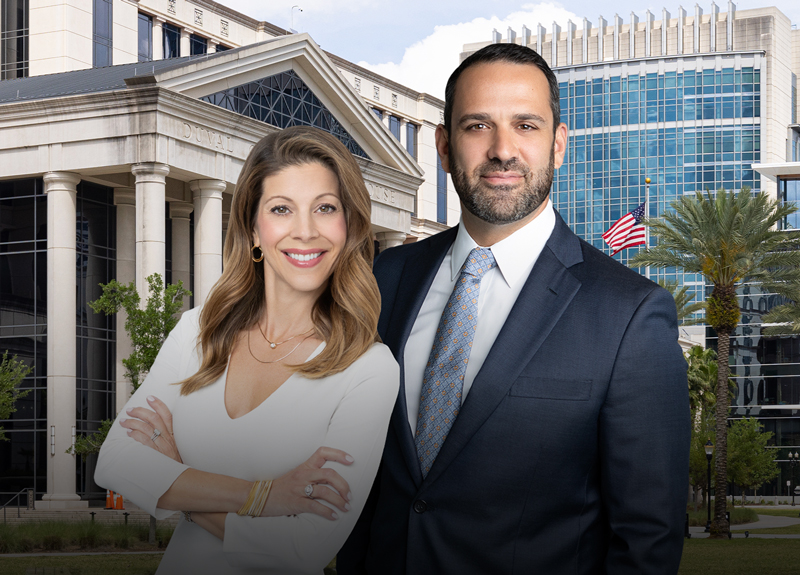If you’ve been injured in an accident and are seeking personal injury compensation or applying for disability benefits in Florida, you may be required to undergo a disability exam. This medical evaluation is a critical component in assessing your eligibility for benefits or compensation.
While it’s not a test in the conventional sense, the results of the exam can heavily influence the outcome of your claim. Understanding how these exams work—and how to approach them—can make a significant difference in your case.
What Is a Disability Exam?
A disability exam, sometimes called an independent medical examination (IME), is a medical appointment scheduled by either an insurance company or a government agency to assess your injuries or condition.
It’s commonly required when:
- You’ve filed for Social Security Disability Insurance (SSDI)
- You’ve submitted a workers’ compensation claim
- You’re pursuing a personal injury lawsuit, and the defense wants a second opinion
The doctor conducting the exam is usually chosen by the other party, not your treating physician. That’s why it’s so important to be prepared and protect your rights.
How Can a Disability Exam Affect My Case?
The findings from your exam can directly impact whether your benefits are approved or denied. In a personal injury case, the exam may affect how much compensation you receive. If the physician concludes that your injuries are not as severe as you claim, it could be used to challenge your request for damages.
Because of this, it’s essential to treat the exam seriously and be as accurate and consistent as possible.
What Should I Do Before the Exam?
Proper preparation can make a meaningful difference in how your exam is evaluated.
Here are some important tips to follow:
- Review your medical records: Be familiar with your injury, symptoms, and treatment history. You may be asked to describe how the injury happened and what kind of treatment you’ve received.
- Stay consistent: Make sure what you tell the examiner lines up with what you’ve told your treating doctors. Any inconsistencies could raise red flags.
- Be honest: Don’t exaggerate or downplay your symptoms. Explain your pain and limitations clearly, but accurately.
- Dress appropriately: Wear comfortable clothes and shoes, especially if mobility is an issue. This helps show the examiner how your injury affects your daily life.
- Bring a witness if allowed: Some attorneys recommend having a friend or family member attend the exam if possible. Their presence can help verify what happened during the visit.
It’s almost certainly in your best interest to reach out to an attorney for legal advice prior to your exam. They can help you prepare effectively and ensure that your rights and interests are maintained.
What Should I Expect During the Exam?
The appointment may be brief and will likely feel different from a regular doctor visit.
The doctor might:
- Ask about your medical history
- Perform a physical examination
- Test your range of motion or reflexes
- Ask questions about your pain or limitations
- Observe how you move or function
Keep in mind that the examiner may take note of everything from how you get out of your car to how you walk into the office. Even small things could be used in their report.
What Should I Do After the Exam?
Once the exam is over, you won’t usually receive immediate feedback.
However, there are a few steps you can take:
- Write down what happened: Record how long the exam lasted, what the doctor asked, and anything unusual about the visit.
- Tell your lawyer: If you have a personal injury attorney, update them as soon as possible. Your lawyer can prepare for any negative or inaccurate information in the report.
- Continue your treatment: Make sure you follow your doctor’s instructions and continue with prescribed medical care. This helps support your case and recovery.
Taking these steps can help ensure that your case proceeds as smoothly and favorably as possible.
When Should I Talk to a Florida Personal Injury Lawyer?
If you’re being asked to attend a disability exam after a car accident, slip and fall, or another injury, a personal injury lawyer can help you get ready and make sure your rights are protected.
Insurance companies may try to minimize your claim, but you don’t have to handle it on your own. An experienced attorney will know how to prepare you, respond to unfair exam results, and fight for the compensation you need for your medical bills, lost income, and other losses.
Contact the Jacksonville Personal Injury Law Firm of Baggett Law Personal Injury Lawyers Today For Help
For more information, please contact the Jacksonville and Ponte Vedra personal injury law firm of Baggett Law Personal Injury Lawyers at the nearest location to schedule a free consultation today.
We serve Duval County, St. Johns County, and its surrounding areas:
Baggett Law Personal Injury Lawyers – Jacksonville
9471 Baymeadows Rd #105,
Jacksonville, FL 32256
(904) 396-1100
Baggett Law Personal Injury Lawyers – Downtown Jacksonville
121 W Forsyth St Suite 1000,
Jacksonville, FL 32202
(904) 822-4225
Baggett Law Personal Injury Lawyers – Ponte Vedra
480 Town Plaza Ave #130,
Ponte Vedra Beach, FL 32081
(904) 675-1167

